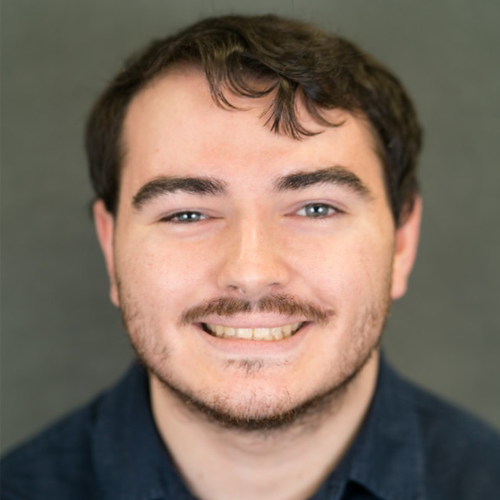For some GWSPH students, returning to math through the required Statistical Analysis in Health Policy course can evoke a mix of apprehension and reluctance.
Enter Teaching Assistant Josh Mannix, recipient of a Philip Amsterdam Graduate Teaching Assistant Award which recognizes exemplary TAs across the George Washington University.
“When students show up to the class, a core requirement for the Master’s in Public Health, they’ve often not touched math in a long time. They may approach the course with some trepidation. They may simply come in thinking ‘I don’t like math. I haven't done it in so long. I just don't like this,’” Mannix said.
With his approachable demeanor, willingness to listen, and dedication to creating a safe space for learning, Mannix helps his students move past their concerns. He tailors his approach based on what his students need — he may gamify problems, break down complex concepts, or present topics in new ways to help a student connect.
Embracing mistakes is essential to the learning process
When students start some of the computer coding required for the course, things won’t always work correctly. “It even happens to me, as someone who has done it for so many years,” Mannix said. For busy master’s and doctoral degree students who want to “get things right the first time” in the name of efficiency, coding mistakes and their time-consuming remediation can feel particularly vexing.
Mannix encourages students to view errors as steps in the learning process. It’s a growth perspective he shares with his colleague, Professor McCarthy. Together, they emphasize the inevitability of errors in coding and the importance of troubleshooting as a collaborative, educational journey.
From Northeastern to London School of Economics to GW
Mannix's interest in teaching was sparked as an undergrad working in Northeastern University's philosophy department, where he gained insight into developing academic courses. Later, his interest solidified during a teaching assistantship at the London School of Economics, where he earned a master's degree in philosophy and public policy. At GW, to pursue a Ph.D. in health policy and prepare for a career in teaching, he began teaching the HPM STATA course.
"I really, really enjoyed it at that point," Mannix recalled. “There was a lab component where I got to sit down with students and just hear them out. I think that back-and-forth in the class working with them really got me hooked.”
Mannix is currently using his skills in coding, quantitative and qualitative research, and general problem solving as a research associate working with Professor Dale Lupu on the GW ExPAND project, a study to help patients with kidney failure expand their understanding of options.
Amsterdam Award recognizes TAs’ hard work beyond the classroom
Mannix is honored to receive an Amsterdam award and is grateful to see TAs’ efforts recognized, particularly because much of the work happens behind the scenes. “It's a great opportunity to showcase the hard work that numerous TAs put in to make these courses successful across different areas of the university.” Beyond understanding and conveying course material, TAs must navigate the nuances of teaching protocols, nurture strong faculty relationships, and foster a positive experience for everyone involved.
Mannix’ dedication has not gone unnoticed.
“It has been such a pleasure having Josh as the TA,” said Melissa McCarthy, Professor of health policy and of emergency medicine at the George Washington University Milken Institute School of Public Health. “He is highly responsive to the students, he is enthusiastic about teaching, and it is clear from his thoughtful and comprehensive responses that he sincerely wants the students to learn as much as they can from the class and to enjoy learning the material. He definitely deserves this award!” Dr. McCarthy said.
Likewise, Mannix appreciates the encouragement. “I'm appreciative to the department and Professor McCarthy for the opportunity to work on this course and develop my skills in teaching. I've learned a lot from both the faculty of the School of Public Health, the School of Nursing, and from Professor McCarthy,” he said.


